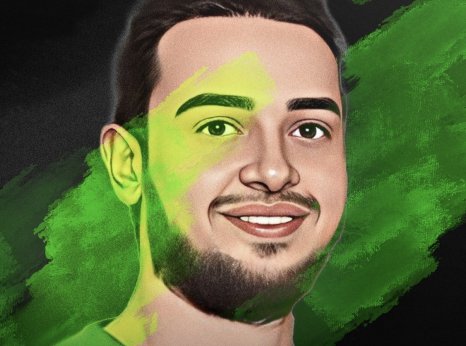Egypt: Unjustly Jailed Politician’s Son’s Health At Risk

Security forces first arrested then 20-year-old Anas al-Beltagy on 24 December 2013 during a visit with his mother to the Tora Prison Complex to see his detained father, Mohamed al-Beltagy. According to information gathered by Amnesty International, security forces surrounded and beat them, before transferring them to the Maadi prosecution where they were interrogated over accusations of assaulting prison guards. The prosecution ordered their provisional release on bail after about twenty hours of detention.
On 31 December 2013, Anas al-Beltagy was arrested from a friend's house in Nasr City neighbourhood of Cairo. He was taken to Nasr City 1 Police Station, where police officers refused to acknowledge his detention and forcibly disappeared him for nearly a month, during which he was subjected to torture and other ill-treatment. Amnesty International learned from informed sources that security forces held him in a small iron cage, described as “unfit for humans”. After his transfer to Abu Zaabal prison in Alexandria in early 2014, the prison administration held him in prolonged solitary confinement and forced him to sleep on the bare concrete floor. He was subsequently transferred to the Tora Prison Complex, south of Cairo, where he continued to be subjected to torture and other ill-treatment, including prolonged solitary confinement. Her was transferred to the Badr Prison Complex in November 2022.
He has been held in cruel and inhuman prison conditions, violating the absolute prohibition of torture and other ill-treatment. In Badr Prison, where he was detained from November 2022 to June 2023, he was held in solitary confinement in a freezing cell with fluorescent lights switched on 24 hours a day, not permitted any exercise outdoors and denied any contact with other prisoners. Since his transfer to 10th of Ramadan prison on 8 June 2023, he was also placed in solitary confinement. In June 2024, authorities transferred Anas al-Beltagy to a “disciplinary cell” for a period of three months to punish him for protesting his cruel and inhumane conditions of detention. Disciplinary cells in Egyptian prisons are very small rooms with poor ventilation. These cells are often devoid of any personal necessities for the prisoner and lack natural light or adequate heating. Prisoners in these cells endure harsh conditions, including limited food and water and sometimes strict restrictions on sleep or movement. In these cells, prisoners are prevented from interacting with others and are completely isolated from the daily activities of the prison. In September 2024, Anas al-Beltagy was removed from the “disciplinary cell” and returned to solitary confinement. This means that he is in a regular cell again but remains isolated from other prisoners for extended periods of time and is deprived of communication with others or of participation in any social activities. Prison officials continue to ban his family from bringing him any food, climate-appropriate clothes and medicine, despite well-documented patterns of prison authorities failing to provide those in their custody with sufficient food, potable water, basic items for personal hygiene, adequate clothing and bedding. He is also not allowed to exercise or spend time outdoors.
During his pre-trial detention renewal hearings, which have been held remotely via video link since 2022, and in which he sometimes appears with his hands and legs cuffed, he complained about the deterioration of his physical and mental health and psychological condition due to his detention conditions. Such hearings erode fair trial standards and take place under coercive circumstances in the presence of prison guards and detainees are prevented from communicating privately with their lawyers. Further, they expose detainees to risks of reprisals from guards for complaining about torture or other ill-treatment and impede the ability of judges to spot visible bruises or other injuries. Lawyers also frequently complain of technical problems during online hearings, including poor connectivity and their inability to adequately hear defendants. Anas al-Beltagy’s lawyers also reported not seeing him on camera during some scheduled detention renewal hearings, but had no confirmation whether he present in the room. His lawyers said that the judge presiding over his detention renewal hearings has dismissed and failed to address his repeated complaints about his ill-treatment, prompting Anas al-Beltagy to request for the hearings on the renewal of his pre-trial detention to be brought in front of a different judge.
Security forces have long targeted the family of Mohamed al-Beltagy, leading several to flee Egypt. Security forces killed Asma al-Beltagy, Anas al-Beltagy’s sister, aged 16 at the time of her death, during their violent dispersal of the Rabaa al-Adawiya sit-in on 14 August 2013, which left some 900 dead. No security or military official has been held accountable for the unlawful lethal use of force to date, while authorities rounded up thousands of actual or suspected members and supporters of the Muslim Brotherhood.